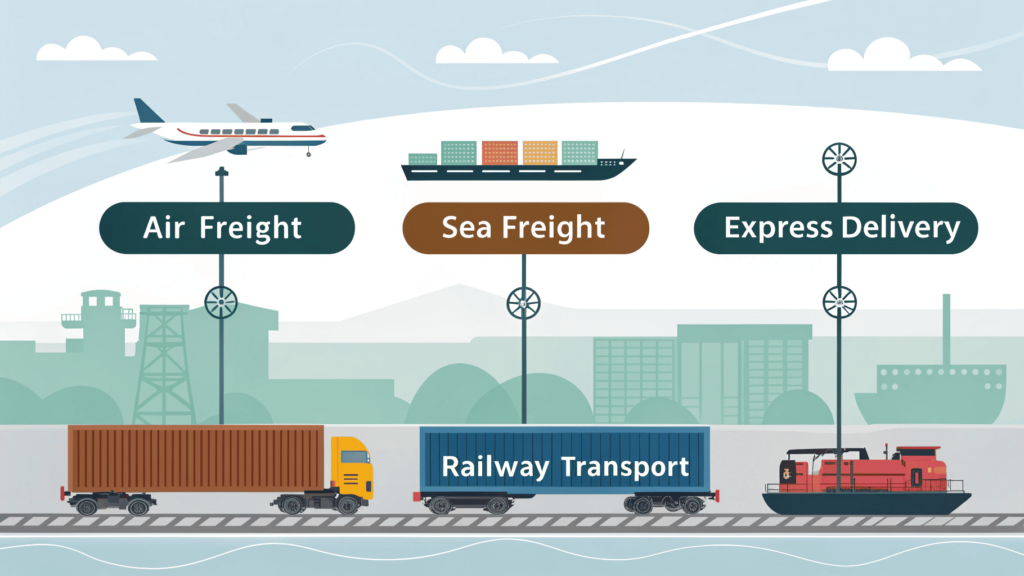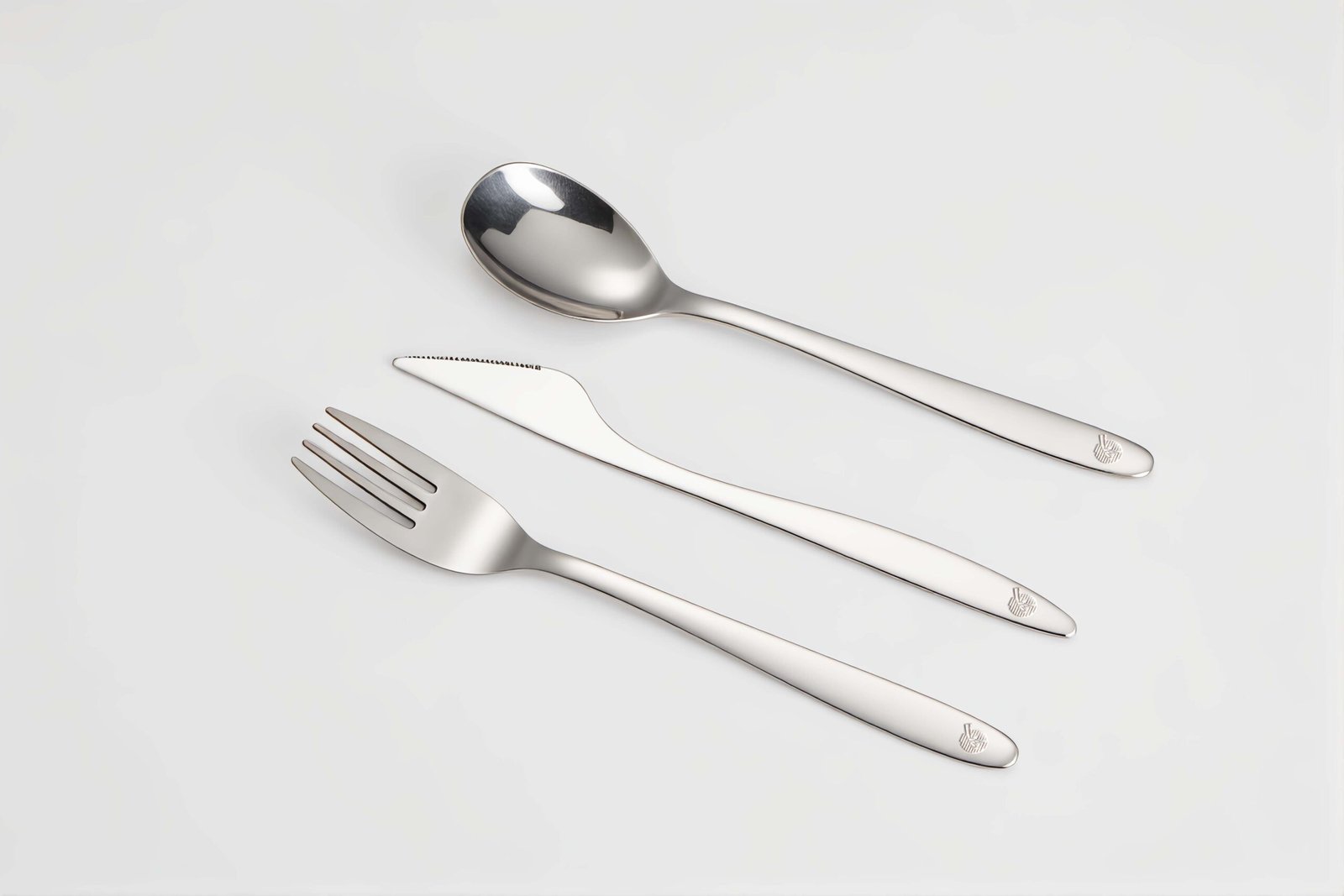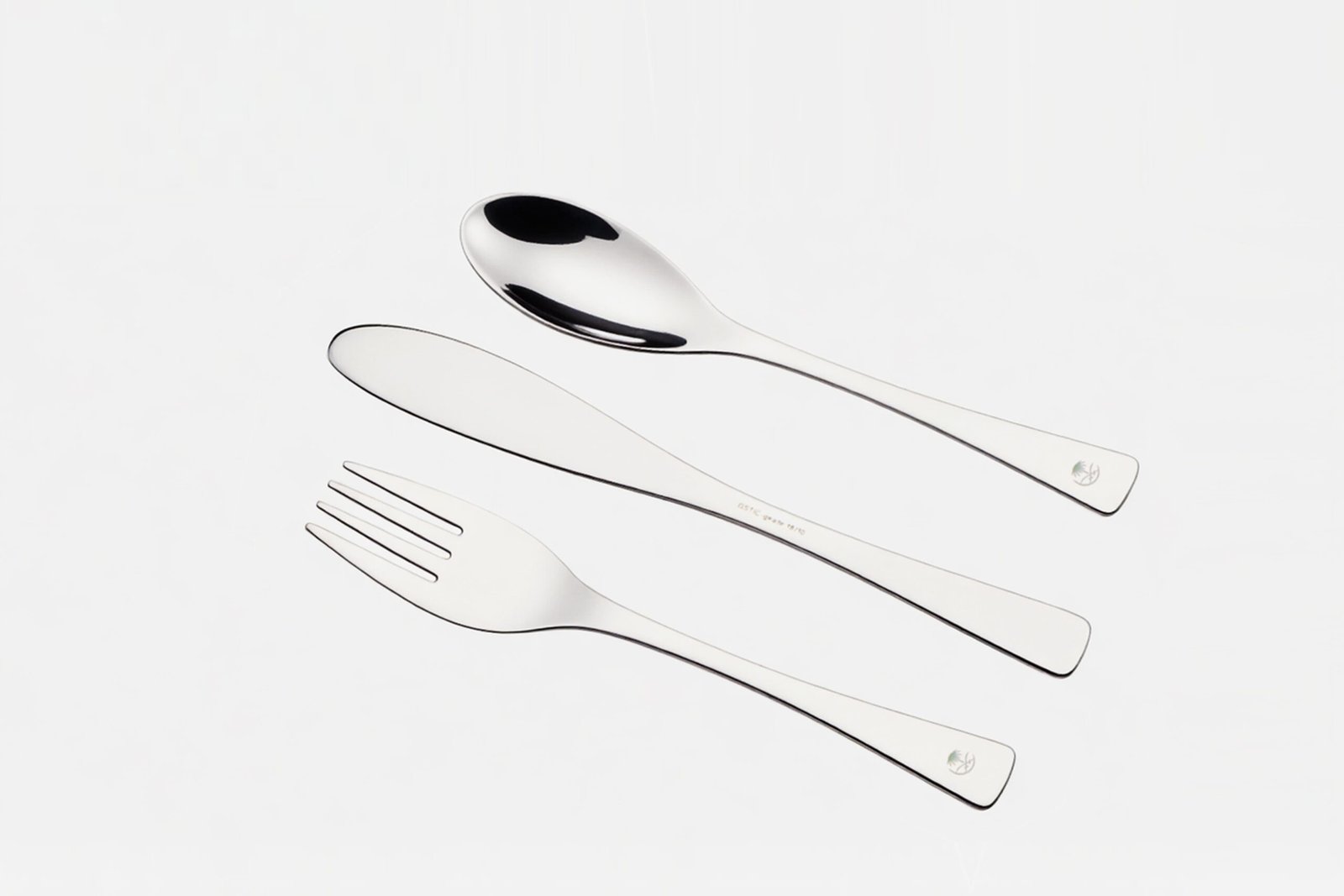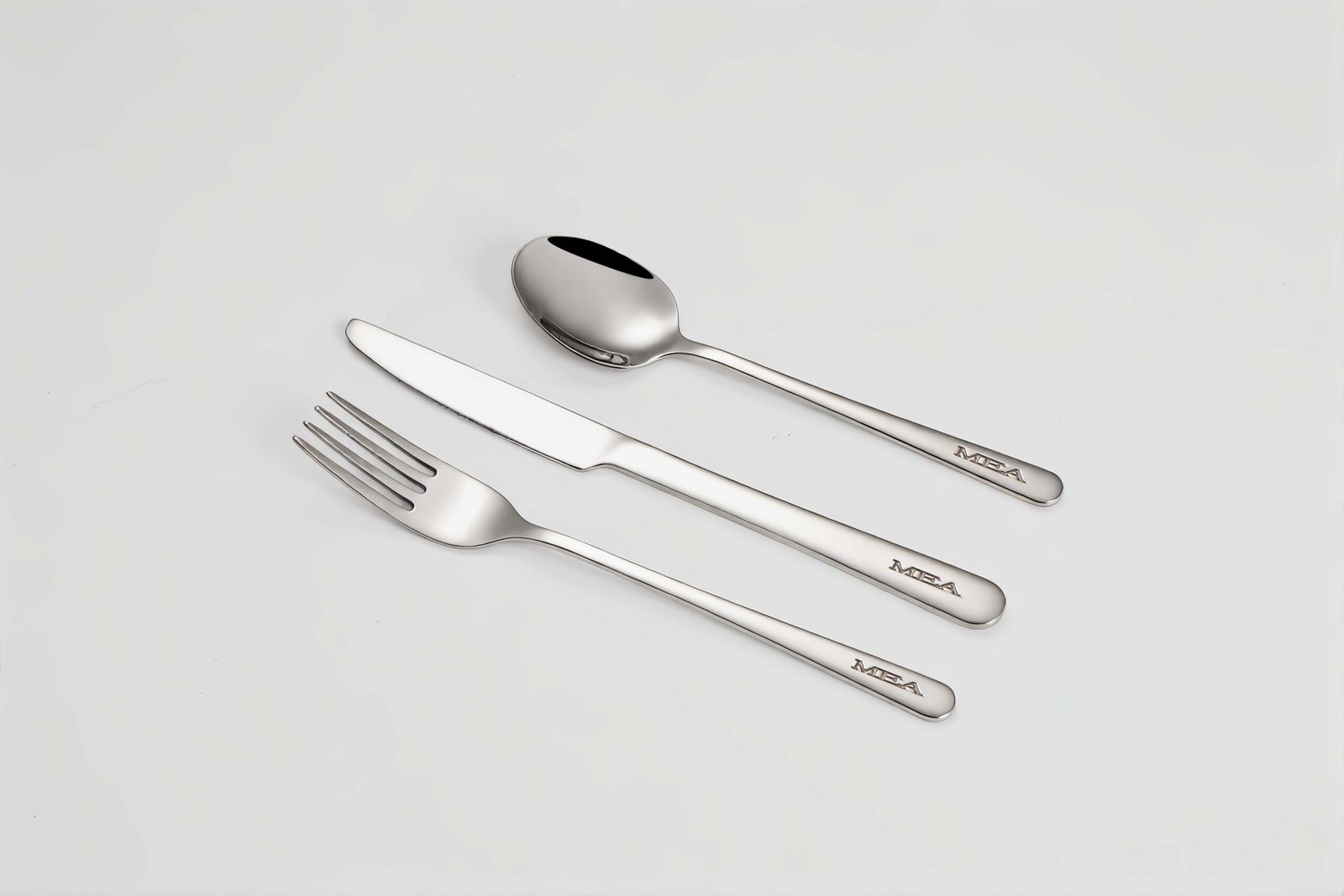Importing outdoor cutlery can feel risky. Price, quality, and reliability often pull you in different directions. But what if you could have all three?
China offers unmatched cost-performance in outdoor cutlery, combining competitive pricing, quality production, and scalable supply—making it a top choice for global importers.
If you’re a brand or distributor thinking about importing outdoor cutlery, you’ve probably heard a lot about China. Maybe you’re curious why so many competitors already source from here. Let me show you what really makes China different.
Table of Contents
What are the advantages of importing from China?
Many suppliers around the world promise quality or low prices—but rarely both. China is one of the few places where you don’t have to choose.
Importing from China gives you access to a wide range of suppliers, advanced production technology, competitive pricing, and flexible customization options.
China’s manufacturing sector evolved quickly in the past three decades. This growth isn’t just about low labor costs. It’s about specialization, innovation, and scalability.
1. Industrial Clusters: Cutlery Capital of the World
China’s production ecosystems are extremely mature. Let’s take Jieyang, for example. It’s known as the “City of Cutlery” because entire supply chains exist within driving distance. This clustering brings down production time and cost.
| Region | Specialization | Benefit |
|---|---|---|
| Jieyang | Stainless steel cutlery | Integrated supply chain |
| Yangjiang | Kitchen tools & knives | Tooling and forging expertise |
| Wenzhou | Hardware accessories | Lower accessory costs |
2. Experience and Scale
Factories here have handled millions of orders. From mass production to boutique customization, most manufacturers are capable of adapting. This flexibility supports both small businesses and large retail chains.
3. Customization and Private Label Options
Many Chinese suppliers offer low MOQs for customized outdoor cutlery—engraving, colors, materials, or packaging. This helps you build your brand with less risk.
4. Compliance and Certifications
Chinese manufacturers are more aware than ever of international compliance requirements like LFGB, FDA, BSCI. At Brilliant, we help clients handle certifications so their goods pass customs and inspections smoothly.
Why is it cheaper to import from China?
Price isn’t just about labor anymore. China’s cost advantage now includes raw material access, economies of scale, and process optimization.
China maintains low production costs due to its economies of scale, established supply chains, and centralized industrial hubs.
There’s a misconception that low wages are the only reason Chinese goods are affordable. That hasn’t been true for a while. Let’s look at the real reasons:
1. Bulk Raw Materials Purchasing
Steel is a major cost factor. Because Chinese factories buy huge volumes of stainless steel, they get better prices. These savings are passed on to clients.
2. Efficient Labor Allocation
Although wages have increased, factories are smarter about labor. Tasks are split efficiently between machines and people, which reduces overhead.
3. Tooling and Mold Reuse
Tooling is expensive. In China, tooling libraries are often reused across projects. This cuts costs for new customers, especially in outdoor flatware where forms and designs are often standardized.
| Cost Factor | Why Cheaper in China |
|---|---|
| Raw Materials | Bulk purchase agreements with steel mills |
| Labor Management | Specialized roles + automation |
| Logistics | Nearby ports + consolidated exports |
| Tooling | Shared molds reduce one-time engineering costs |
Why are raw materials cheaper in China?
Materials like stainless steel, plastic, and bamboo are core to outdoor cutlery. Their price affects your total cost more than you might think.
Raw materials are cheaper in China due to localized sourcing, long-term supplier partnerships, and government-supported manufacturing infrastructure.
Let’s take stainless steel—used in most cutlery—as a case study.
1. Local Production Capacity
China is one of the largest producers of stainless steel in the world. Most factories source directly from mills within the country. This cuts out multiple middlemen and transport costs.
2. Resource Control and Recycling
Many cutlery factories use recycled steel or offcuts from larger steel processors. This lowers environmental impact and cost.
3. Stable Material Supply Contracts
Due to long-term business relationships between mills and factories, price fluctuations are absorbed better. It’s common for producers to lock in quarterly or annual steel prices with mills.
| Material | Reason It’s Cheaper |
|---|---|
| Stainless Steel | Domestic supply, no import tax, bulk contracts |
| PP/Plastic | Domestic chemical plants + recycling programs |
| Bamboo/Wood | Local farming, sustainable forestry management |
What are the benefits of sourcing from China?
It’s not just about cost. There are long-term strategic benefits to choosing China as your sourcing base.
Sourcing from China allows for faster prototyping, easy scalability, and access to a wide range of materials, styles, and manufacturing techniques.
I’ve helped dozens of clients scale from startup brands to national chains using one simple decision—working with reliable Chinese suppliers. Here’s why that matters.
1. One-Stop Services
From design to packaging, Chinese suppliers often provide end-to-end solutions. This reduces the need for multiple vendors.
2. Product Variety
Want matte finish, mirror polish, color coating, or wooden handles? China offers the widest selection in outdoor cutlery design.
3. Shorter Lead Times
Factories here work around the clock, especially during export seasons. Many already have molds and components in stock, which shortens delivery time.
4. Adaptable MOQs
China is one of the few places where a factory may accept a trial order of 500 sets and then scale to 50,000 later.
| Benefit | What It Means for You |
|---|---|
| Product Variety | More options for seasonal or niche designs |
| Short Lead Times | Faster restocking or launching new items |
| End-to-End Service | Less coordination, faster turnaround |
| MOQ Flexibility | Lower risk when entering new markets |

What are the best things to import from China?
China isn’t just great for cutlery. There’s a whole range of outdoor dining products that you can source together.
The best products to import alongside cutlery include camping sets, utensil organizers, reusable straws, travel mugs, and outdoor food containers.
One smart strategy is to source bundles instead of single items. This creates more value for your customers and increases your margin.
1. Multi-Product Kits
China’s suppliers often produce in clusters. So, if you’re sourcing cutlery, it’s easy to find a partner that also makes cases, cups, or bags.
2. Design Harmony
You can match materials, colors, and logos across products. A stainless steel fork, silicone straw, and wheat straw case can be packaged as a zero-waste kit.
3. Lower Shipping Costs
Combining items in one shipment reduces your per-item freight cost.
| Product Bundle Idea | Benefit |
|---|---|
| Cutlery + Storage Bag | Increases product appeal |
| Cutlery + Travel Mug | Ideal for campers & picnics |
| Utensil Set + Straws | Taps into sustainable lifestyle |
| Outdoor Kit (all-in-one) | Great for gifting and branding |
How can I reduce shipping costs from China?
Shipping can eat up your profits fast. But with a smart plan, you can keep it under control.
Reduce shipping costs by consolidating orders, choosing the right Incoterms, using freight forwarders, and planning around peak seasons.
Shipping is all about timing, weight, and relationships. I’ve helped many clients cut 15–25% just by tweaking a few details.
1. Choose FOB over EXW
FOB (Free on Board) lets you control freight and avoid markups by suppliers. It’s easier to compare prices among shipping agents.
2. Work With Freight Forwarders
They often negotiate better rates than you could get directly. Plus, they consolidate multiple orders from different suppliers into one shipment.
3. Avoid Peak Seasons
Shipping rates spike before Chinese New Year or Black Friday. Plan your production and transport ahead of time.
4. Choose Sea Freight Over Air

Unless you need goods urgently, sea freight is much cheaper per unit.
| Strategy | Impact on Cost |
|---|---|
| Consolidated Orders | Lower per-item shipping fees |
| Strategic Timing | Avoids peak rate increases |
| Packaging Optimization | Reduces volume weight charges |
| Right Freight Partners | Access to better rates & support |
What is the cost of importing goods from China?
Knowing the actual cost goes beyond just unit price. You need to calculate the full landed cost.
The total import cost includes product price, shipping, duties, taxes, and local handling charges.
Many people underestimate what it really costs to import. Let’s break it down:
1. Factory Price
This is your base price. Usually quoted FOB. If it’s EXW, add inland transport to the port.
2. Freight Cost
Depends on weight, dimensions, port of origin and destination, and shipping method (sea/air/train).
3. Import Duties and Taxes
Each country has different HS codes and duty rates. For example, stainless steel cutlery may have a 5–15% duty, depending on your country.
4. Customs Clearance and Local Charges
Includes documentation, unloading, and delivery to your warehouse.
| Cost Category | Typical Range (Example for 500kg) |
|---|---|
| Product Cost (FOB) | $1,000 – $3,000 |
| Freight (Sea) | $300 – $800 |
| Import Duty (10%) | $100 – $300 |
| Local Charges | $150 – $500 |
| Total Landed Cost | $1,550 – $4,600 |

Is it worth buying from China?
Many people ask this. The answer depends on your goals. But if you want quality and cost-efficiency—it’s a yes from me.
Yes, importing from China is worth it when you prioritize scalability, customizability, and cost-performance.
I’ve seen firsthand how sourcing from China transforms businesses. Here’s why:
1. Higher Margin Opportunities
Lower sourcing cost = more pricing flexibility. You can compete or profit more.
2. Business Growth and Consistency
Chinese factories help you scale with consistent quality. You can go from 1,000 sets/month to 100,000 without switching suppliers.
3. Control Over Branding
OEM and ODM services help you create your own branded product lines. This builds long-term customer loyalty.
| Benefit Category | How It Pays Off |
|---|---|
| Higher Margins | Lower product cost, higher profits |
| Scalability | Handles growth without new sourcing risks |
| Brand Control | Build customer loyalty with unique designs |
China offers a cost-effective, scalable, and customizable solution for outdoor cutlery imports—perfect for building a strong product line with great margins.






